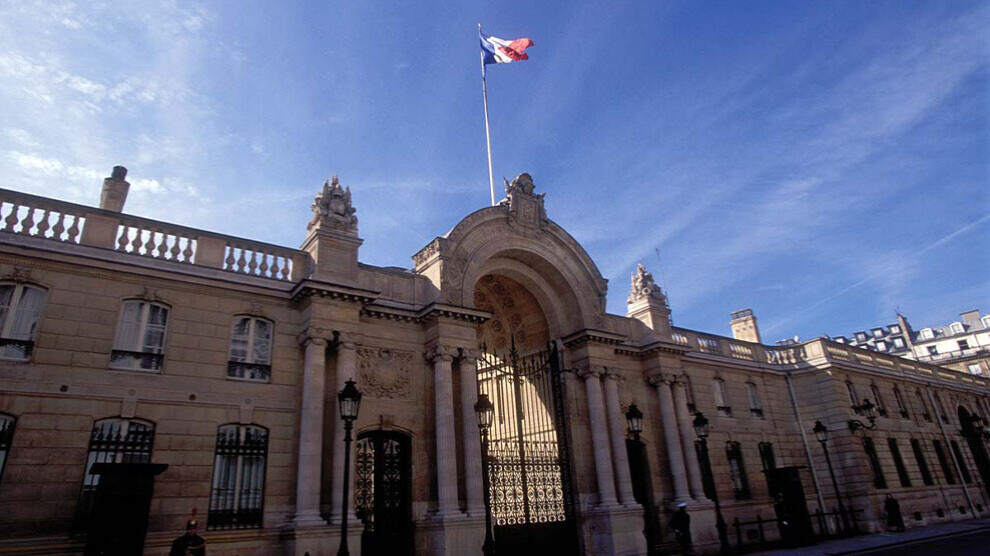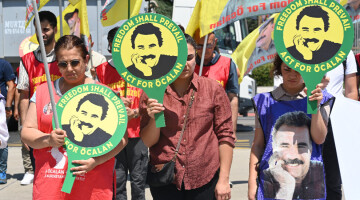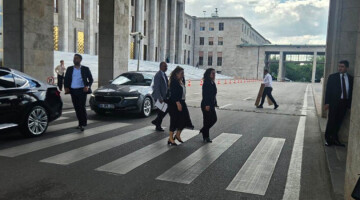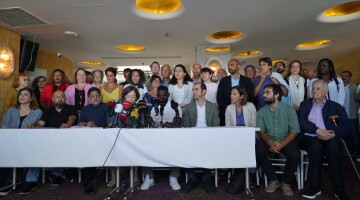A delegation from the autonomous region of Northern and Eastern Syria met with French President Emmanuel Macron on Monday in the Elysée Palace. During the meeting, among other things, solutions to the conflicts in the region were discussed, said Berivan Khaled, co-chair of the self-government executive council. The delegation also includes the Executive Committee Chair of the Syrian Democratic Council (MSD), Ilham Ahmed, and Ghassan Youssef co-chair of Deir ez-Zor Civil Council.
Efforts by France for international recognition of the Autonomous Administration were on the agenda of the meeting. Particular attention was paid to the democratic autonomy practiced in Northern and Eastern Syria. Macron emphasized the need to continue working towards “political stabilization” in the region and “inclusive governance”. He also praised the “courage” of the fighters in the northeast and the sacrifices they and the local population made in resisting the terrorist militia Islamic State.
The French President "assured" that Paris would "continue the fight against terrorism alongside the Syrian Democratic Forces," said the Elysée Palace.
Another important point in the conversation was the embargo against the northeast Syrian autonomous areas. According to Khaled, it was emphasized that the crisis in the region has intensified since the closure of the Al-Yarubiyah (ku. Til Koçer) border crossing in January 2020 and the need for humanitarian services multiplied. The delegation called for initiatives to reopen the crossing on the Syrian-Iraqi border. In Northern and Eastern Syria, more than 1.3 million people depend on aid supplies. The cross-border aid based on a resolution by the UN Security Council, however, continues to only reach the Idlib province, contrary to sharp criticism from the self-government and international organizations. According to Macron, France wants to continue "its humanitarian actions" in northeast Syria.
Humanitarian aid from France
In 2021, the President of France decided for the fourth year in a row to provide extraordinary humanitarian aid to Syria in the amount of 50 million euros. More than half of this went to the autonomous areas. There, French aid focuses on the sustainable improvement of the living conditions of the population groups through programs in the areas of health and hygiene, the supply of water, food and essential goods, as well as rapid reconstruction. The stabilization of the areas that were liberated from the tyranny of the IS is a focus of the mission.












